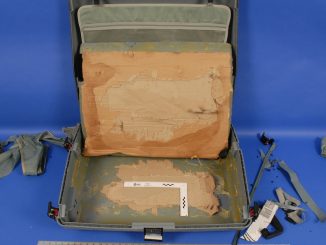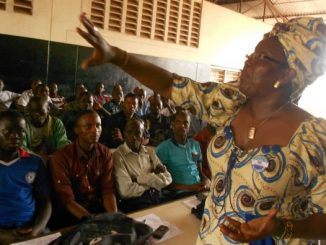
By Professor Cecil Blake
I have had a long running debate with colleagues and friends on my position on what is variously called “domestication.” Simply stated it is a deliberate adoption of ex situ prescriptions, theories, mitigation strategies, etc, and, at times adaptation of such formulations for “domestic”/national implementation.
I have rejected particularly those ex situ prescriptions, etc., involved in social engineering, with particular reference to governance across the spectrum. The rationale for my rejection is constant: many African countries with extremely few exceptions are not using their God-given intellect to fashion solutions for their respective development challenges. Furthermore, rather than critically assess the external prescriptions, Africans, it seems have this vexing attitude of simply accepting them, claiming “domestication” as their raison d’etre. I am a firm believer in science based and proven solutions that may come from outside the continent, with possibilities of domestication. But even at that appropriate conditions under which such solutions are advocated have to be the major determinants for attempts to domesticate them.
My focus presently is on the domestication of one mitigation strategy announced by the World Health Organisation (WHO) and several countries that have adopted it, to fight this increasingly devastating pandemic. I refer to lock downs. As a matter of principle I accept it as a strategy that has worked notably in China. Operationally, in Africa, I am having second thoughts. Overall, mitigation strategies are predicated presumably, on the available capacity required to “domesticate” them.
I was having a chat this afternoon with a friend on the subject of domestication of lock downs as a mitigating strategy for COVID-19. We arrived at this conclusion — we are dealing with two major existential threats: housing conditions, and access to food and water under lock down conditions.
As we were analysing the two threats, we agreed on a basic premise: welfare states tend to accept without much hesitation, lock downs as a mitigating factor because the State is by itself a social safety apparatus. The State provides many services aimed at, among other objectives, the reduction of poverty, near free medical coverage to an extent, and the provision of food for the most vulnerable during crises such as pandemics. Such Safety nets are critical to have in place during mitigation strategies such as lock downs.
African states in general are not welfare states. Very wealthy Western nations have social safety programmes that do not match the qualities of welfare states, but provide for the poor to an extent, and the rest of their populations during crises such as the Covid-19 pandemic. We have no such wealthy states in Africa, even with our incredible amount of natural resources.
We also discussed at length, the quagmire in which African countries find themselves with the exponential growth in overcrowded ghetto/slum communities. Thousands, if not even millions of Africans live in squalor; in jam packed ghettoes. Some of the ghetto communities have as a dominant mode of habitation, “Face me ah face you” accomdation. Many of such accommodations are a tight, usually single room, accomodating multiple members of the family and friends. All are cramped in the one room, in close proximity to other such structures, and opposite each other with a narrow road separating them. The sanitary conditions are horrible with no toilet facilities in the room. There are, in some ghettoes, very limited public toilet facilities for the entire slum community. Access to water is another remarkable deficiency.
In a lock down situation, how could ten people for instance stay indoors in a room constructed to accommodate one person? Some of the occupants live in such rooms by turn. Occupants give way to each other by staying outside or going outside of the confines of the ghetto for a given amount of time. Families with children live in such squalor. Lock downs cannot be easily enforced in such squalid conditions. Given the above, social distancing which is not the focus here, but relevant, is practically unattainable.
The mitigation instructions by WHO make very good sense. “Domesticating” them in squalid, overpopulated communities, however, becomes an obvious quagmire.
In the meantime, many African governments lack the social safety networks and accompanying resources and infrastructure required to “domesticate” the WHO guidelines. No funds are readily available to feed the disfavored. They in turn do not have money to buy items in bulk. Even if they manage to buy, preserving them — refrigerators are not available not to mention reliable and affordable power supply.
We do have traditional methods of food preservation in the absence of refrigerators. But where is the money to buy the food? Where is the government that should have food reserves for emergencies and cash to help the disfavored?
Uncritical domestication, therefore, reveals a sad lethargy of the mind that has been the vexing morass in our time in the annals of “post-independent” Africa. Here lies the quagmire. I have no ready answers outside of some observations and suggestions made in previous postings. How long for God’s sake will this quagmire last without a willed systemic intervention?



